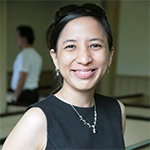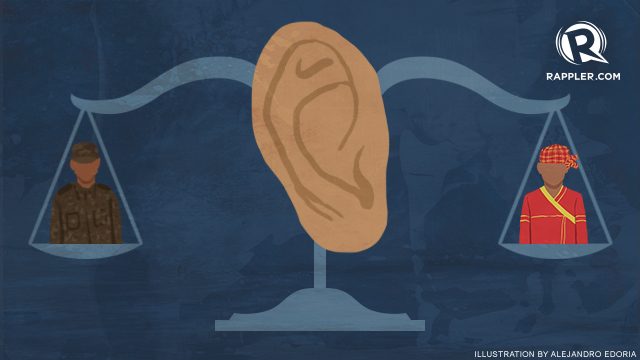SUMMARY
This is AI generated summarization, which may have errors. For context, always refer to the full article.
 In the news on the Lumads, with all the poverty, the killings and deaths, it’s difficult to imagine any explanation other than what is presented: the brutish military unreasonably attacking members of the New People’s Army (NPA) while terrorizing sweet Lumads or forcing them to fight.
In the news on the Lumads, with all the poverty, the killings and deaths, it’s difficult to imagine any explanation other than what is presented: the brutish military unreasonably attacking members of the New People’s Army (NPA) while terrorizing sweet Lumads or forcing them to fight.
It’s easy to forget that, even in the news, many sides are not given much time or space – maybe because the answers of the more traditional Datus, or even of the military, are less fantastic, less easy to understand, or the actors are just more reserved.
Apart from what I have read and watched, I had the opportunity to hear the Armed Forces of the Philippines (AFP) and the Lumads, some of whom are suspected of…something, on separate occasions. Their stories, told from very different perspectives from the media, turn out to make more sense than what I was prepared to believe.
On review, it occurs to me that people against the military cite a document without any source, or statements of the church to confirm whatever evidence they have. I don’t know when the church became a fact finding or investigative body. They aren’t even required to verify what they hear. Just because we think they don’t lie doesn’t mean they are not easily lied to.
And yet the evidence they demand from the other side is asked for with such incredulity. Between a people whose laws are not even written, a military with at least some sources of evidence, and politicians and other officials who should have access to documents, I can’t see how we can really believe one side or the other.

Big voices
It made me think about how, though I am generally not hysterical, I can appear rational and apparently be so easily swayed by the people screaming the loudest, especially when the story is about poor davids and evil goliaths. It also made me think about how one-sided the media can be and how things snowball because politicians often react to partial information, same as me – except they can mobilize arms and make sweeping pronouncements from which they cannot back down.
There is still so much to know and we are not listening to what is not being said. No one is bothering to explain the allegations that the innocent school teachers and administrators they keep looking for are actually the suspected NPA members who teach Lumad kids how to assemble, carry, and use firearms and sing some other national anthem.
There are too many unanswered questions but come to think of it, all I hear are how the AFP is lying. Can it really be that one else is lying? That the NPA, who have much to gain from a fragmented community, is not lying? I don’t even think anyone has really figured out who the legitimate Datus are, or who should be the credible sources of community information are. Who knows where the stories are coming from?
The facts will hopefully come out.
In the meantime, this is what I do know: apparently very little about our indigenous peoples (IPs) – despite specializing for a while in the protection of traditional knowledge. I see our IPs as distant discovery channel subjects rather than as Filipinos – my own people who should be more kin to me than any other in the world.
Even knowing the difficulties of agrarian reform farmers, how much less I imagined our indigenous struggle to remain peaceful – despite all that’s being done to them and to their homes with such impunity – because they are so far away and friendly and uneducated. How have I been missing important things they say because I measure their value according to the untrusting habits of the city life I lead. Small things like: how can there be no witnesses or alibis?
I don’t know. I’ve never lived in forests or have witnesses who are also in hiding, hunted down on both sides by the NPA from whom they try to escape or the government forces who want to arrest them based on some evidence that no one has seen or verified.
People have a tendency to hear things that support their beliefs. Lawyers are supposed to have been trained better, like investigators or scientists or journalists: to learn to get the truth by suspending disbelief and reserve judgment until as many sides are allowed to speak, then consider each argument as faithfully as if you had to argue it yourself.
Listening, a rare gift when we rely so much on noise. – Rappler.com
Trina Monsod lectures on international criminal law at the Ateneo Law School and constituonal law at the FEU law school.
Add a comment
How does this make you feel?
There are no comments yet. Add your comment to start the conversation.